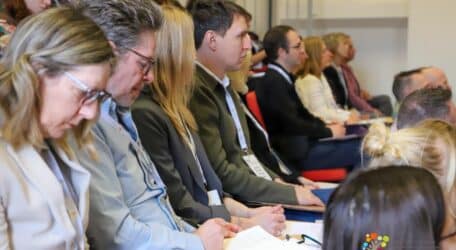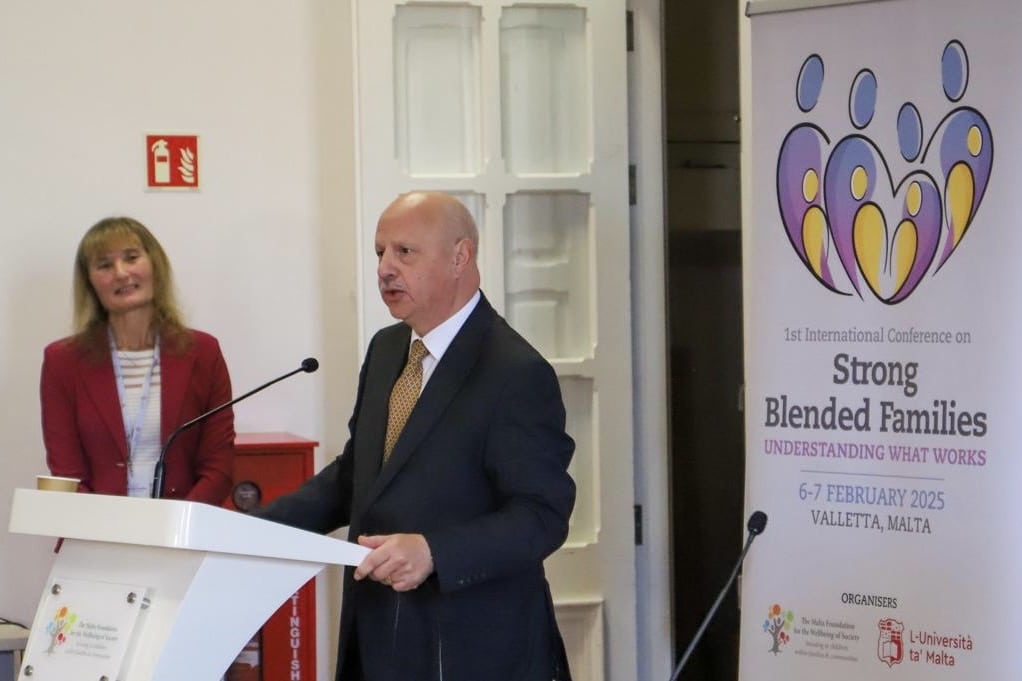
Global experts convene in Malta to discuss strong blended families
The shift in traditional family structures is increasing the prevalence of blended families, prompting global academics and experts to convene in Malta today to turn the spotlight on their unique challenges and strengths.
‘Strong Blended Families: Understanding What Works’ is the first international conference about this theme and is being held in Malta over two days. Scholars, researchers and practitioners are meeting to share their expertise and experience to advocate for what helps blended families thrive and to understand what this shift in traditional family structures means for policymakers and related services.

Organised by The Malta Foundation for the Wellbeing of Society and the University of Malta, this conference follows on the quantitative and qualitative studies carried out by University academics Prof. Angela Abela, Prof. Suzanne Piscopo, Prof. Sue Vella and Allison Zammit Said in 2016 and 2023.
Malta Foundation for the Wellbeing of Society chair Marie-Louise Coleiro Preca is hoping this conference will eventually lead to the creation of a global network and pave the way for a common repository of research and best practices on blended families.
In a blended family, also called a step-family, one or both parents have children from a previous relationship, and have combined to form a new family. Parents may be in a same-sex or heterosexual relationship and may, or may not, have children with each other.
Between today and tomorrow, scholars and clinicians from the US, Canada, Finland, Japan, Singapore, Denmark, Belgium, Isreal, Russia, Portugal and Malta will be delving into how to survive and thrive in such families and what works when re-partnering or remarrying, among other topics.
Ms Coleiro Preca said: “I strongly believe this conference should not be a one-off event, but rather the beginning of a sustainable and long-term initiative. To this end, I propose the establishment of a dedicated network of scholars, researchers, and academics focused on blended families.”
“This network will serve as a hub for ongoing collaboration, research, and policy development, ensuring that the insights and discussions initiated here continue to shape and improve the wellbeing of blended families for years to come,” she told all those gathered at the University’s Valletta Campus.
Ms Coleiro Preca added: “We want to spark an international conversation, to share best practices and garner more insight into this reality. Right now, we lack the data to formulate policies and we want this to be the first step towards advocating change.”
The only glimpse into this reality is the 2016 study carried out by Prof. Abela, Prof. Piscopo, Prof. Vella and Ms Zammit Said among 2,400 participants in Malta. This study was commissioned by the President’s Foundation for the Wellbeing of Society, and had for the first time shown that 53 per cent of those who were divorced and 37 per cent of those who had separated, were now in a new relationship.
While this situation brings to the fore new opportunities for companionship, it also leads to challenges that arise from new family dynamics, Ms Coleiro Preca said, while thanking University Rector Alfred Vella and the studies’ scholars, whose commitment to shedding light on blended families paved the way for today’s discussions.
Prof. Abela, the study’s lead investigator from the University’s Department of Child and Family Studies, said blended families remained invisible, and have not attracted much policy or popular attention, despite a rise in the number of couples seeking to separate or divorce.
“Despite everyone’s best efforts, the bonding among new family members can be a delicate process to navigate. We all have a crucial role to help these families be more resilient and build strong foundations… we can only achieve this through stronger collaboration and further research to understand the magnitude of the situation,” Prof. Abela said.
- February 8, 2025 No comments Posted in: Events Tags: blended families, global experts





